When prescribing antibacterial drugs, the doctor will tell the patient that alcohol and antibiotics are strictly prohibited. Most people try to stick to this recommendation, but if the treatment process coincides with a major event or holiday, it is easy to break the ban.
Evidence-based medicine’s attitude to this situation is controversial because there has not been a comprehensive study, the results of which will allow a full assessment of the negative consequences of simultaneous use of alcohol and antibacterial drugs. This doesn't mean that you can combine them with peace of mind, and an irrational doctor would recommend this. In order to understand the dangers of drinking alcohol during antibiotic treatment, this article describes the consequences of the combined effects of these substances on the body and gives examples of known combinations of drugs and alcoholic beverages.
The effects of alcohol and antibiotics on the body
Our country’s festivals are traditionally celebrated with spirits. Many people cannot deny their pleasure even when they are sick, forgetting that small doses of alcohol have relaxing and calming effects, while large doses can cause serious health problems. in:
- Liver dysfunction.
- Excessive gastrointestinal pressure.
- The heart rate increases.
- Brain cell death.
- Chronic kidney and bladder disease.
- Nervous system disorders.
- Severe hangover syndrome.
- Depressive state, neurasthenia.
Drinking alcoholic beverages during illness is definitely not worth it. This will put extra stress on the body, which is already in a state of emergency, fighting the disease.

Antibacterial drugs launched 90 years ago have quickly become a drug in demand, saving millions of lives. The principle of action of antibiotics is to destroy pathogenic bacteria and destroy their structure; prevent reproduction and prevent the growth of pathogens, after which the immune system has the opportunity to cope with the disease on its own.
Antibacterial drugs will act as actively as possible on a person, weakening the immune system's ability to fight disease independently. In the case of bacterial infections, their use is mandatory and the body cannot cope with it alone. Only professional doctors have the right to prescribe such drugs. When antibacterial drugs are useless, it is absolutely impossible to treat themselves, especially viral diseases.
Antibiotics help avoid the serious consequences of diseases, but taking them can cause a large number of side effects:
- Suppress the natural microbial community of the stomach.
- The immunity is suppressed, and the body cannot resist the pathogens of the disease.
- The liver cannot completely remove toxins from the body.
A person’s sense of well-being deteriorates, with drowsiness, weakness, depression, and worsening of chronic diseases.
It is not difficult to imagine what happens to unfortunate organisms when the antibiotic treatment process is combined with a violent feast. The immune system, kidneys, liver and gastrointestinal organs will face a double burden, which is extremely difficult to cope with. This may cause the current condition to worsen, and the acute phase of the disease will enter the chronic phase, making it more difficult to treat.
The effect of alcohol on the action of antibacterial drugs
Evidence-based medicine does not know specific examples of the weakened effect of antibiotics in the context of drinking alcoholic beverages. Sometimes the opposite happens: the number of enzymes increases, and the breakdown of the drug occurs faster. But another situation is also possible. When the drug is poorly excreted from the body, it will accumulate in the cells and cause adverse reactions.
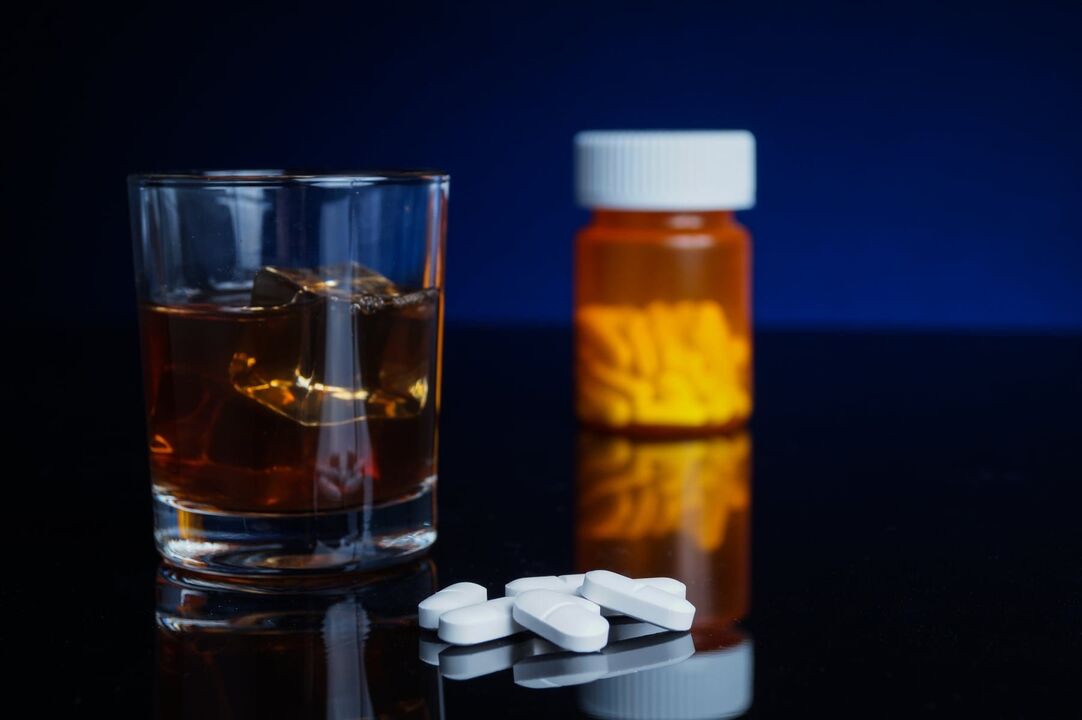
There are two strange theories that explain why the incompatibility between antibiotics and alcohol is considered a scientific fact. The first said that antibacterial drugs were originally used to treat sexually transmitted infections. Doctors believe that the existence of this disease is a manifestation of intemperance and weakness of character, so prohibiting drinking has become a punishment.
The second theory appeared during World War II, when wounded soldiers needed penicillin. There is too little medicine. According to legend, doctors tried to extract it from urine. The problem is that soldiers like to drink beer in their leisure time. Beer has a diuretic effect and can also reduce the concentration of microorganisms. Therefore, alcoholic beverages are banned, and in medicine, the hypothesis that alcohol and antibiotics are incompatible has gradually become ingrained.
There are many reasons for this statement. The doctor pointed out that patients who drank alcohol while taking antibacterial drugs had a much slower recovery rate than those who led a sober lifestyle. The reason is that the intake of alcohol containing antibiotics can bring other negative consequences related to the deterioration of the immune system. Drinking alcohol regularly, it is impossible to establish the correct daily eating habits through proper rest and diet. At the same time, vitamins, minerals and nutrients cannot be fully absorbed, and the body is gradually depleted. As a result, the patient's medication will be ineffective.
Compatibility of alcoholic beverages and antibiotics
Modern antibiotics are mild. In most cases, their combination with alcohol will not have a strong negative effect on the body. Doctors have identified many drugs that cannot be used in combination with strong drinks. Their assimilation speed is related to the work of the same enzymes responsible for breaking down ethanol (the basis of alcoholic beverages). Enzymes cannot cope with a lot of work, and as a result, drugs accumulate in the body. This will bring about side effects that a person will soon have on himself.
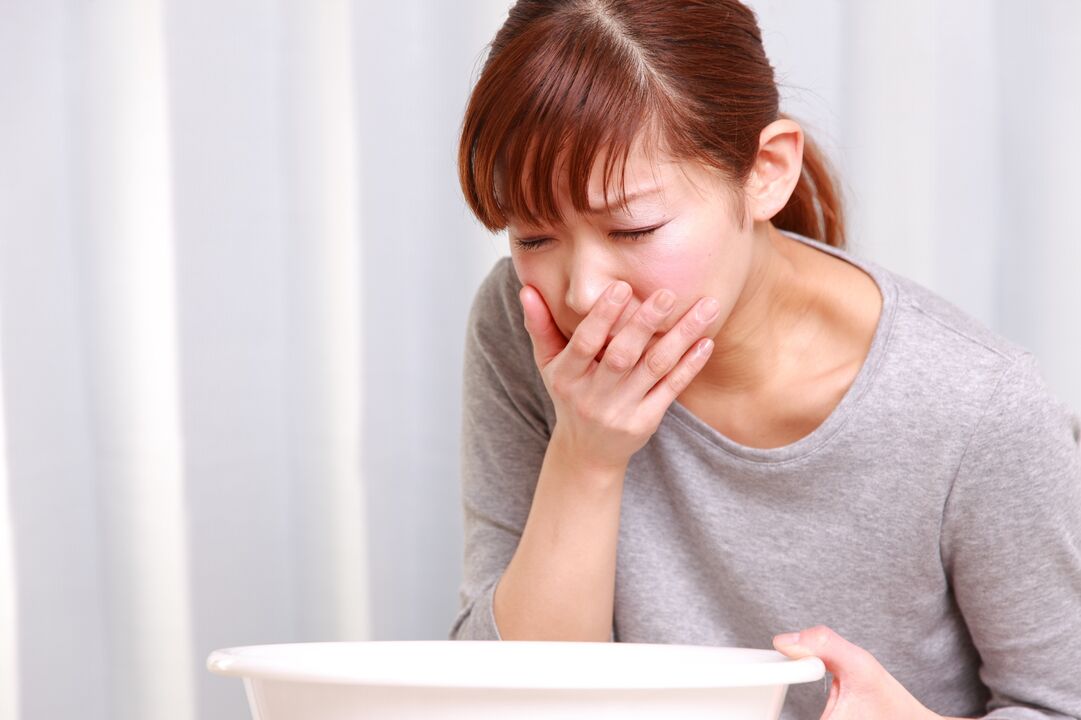
The interaction of antibiotics and alcohol can lead to a series of negative consequences:
- Severe migraine-like headache.
- feel sick and vomit.
- Dizziness, loss of consciousness.
- Fast heartbeat, irregular heartbeat.
- Fever and increased body temperature.
- Sweating.
- Insomnia.
- Close to a state of depression and irritability.
- Weakness, lethargy, loss of strength.
- The inflammatory process of the liver, jaundice.
- Stomach pain caused by gastritis and ulcers.
Disulfiram-like reaction
The most common and dangerous negative consequence is a disulfiram-like reaction. The drug used to treat alcohol addiction can affect the work of enzymes that process ethanol. Metabolism includes two stages:
- Ethanol is decomposed into acetaldehyde.
- Acetaldehyde is converted to acetic acid.
The incompleteness of the second stage leads to the most intense hangover syndrome. For alcoholic beverage lovers who take drugs, the timely decomposition of alcohol is disrupted. If a dose of alcohol is added to the background of ingestion, the body will overflow with toxic substances. Drinking in a drunk state is impossible, and the patient got rid of the addiction.
The signs of a disulfiram-like reaction are similar to those of a severe hangover:
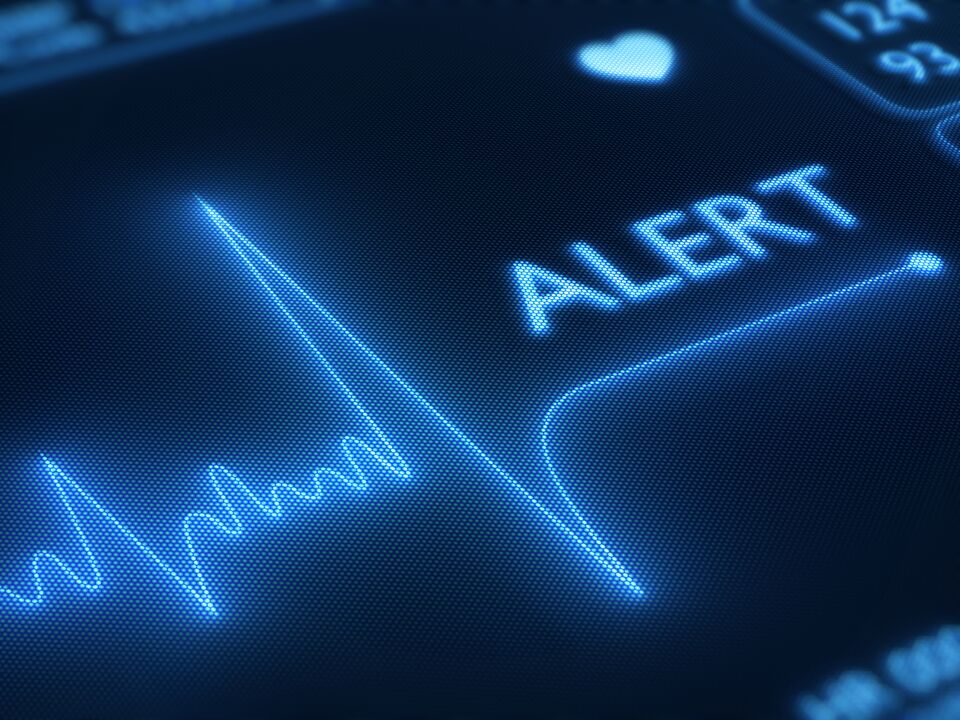
- Chills.
- The heart rate increases.
- feel sick and vomit.
- twitch.
- Allergic reaction.
- Headache.
- Respiratory failure.
The latter manifestation of the disulfiram-like reaction is thought to be life-threatening because it may lead to death. When trying to mix antibiotics with alcoholic beverages, the patient should be careful and closely monitor changes in his condition. The consequences may occur during the banquet or 4-5 hours afterwards. In this case, you must seek medical help immediately.
Effect of co-administration of antibiotics and alcohol on liver and gastrointestinal function
The main reason for prohibiting the combined intake of antibiotics and alcohol is the threat of toxic liver injury. Her enzyme cannot absorb medicine and ethanol at the same time. In this battle, alcohol usually wins, and drugs accumulate in liver cells, threatening severe poisoning.
When sick, the liver is responsible for removing toxins and poisons from the body, and alcohol doubles the load. People who are accustomed to mixing drugs and spirits are more prone to fibrotic tissue changes and liver failure.
Drinking alcohol during antibiotic treatment can adversely affect the gastrointestinal tract. When ethyl enters the stomach, it causes congestion and vasodilation, making alcohol easier to absorb. If the antibacterial drug enters the gastrointestinal tract in a short time, the drug will not be completely absorbed, and the therapeutic effect will be reduced to zero.

Antibiotics can have a negative impact on the intestinal flora. Patients taking these drugs often complain of abdominal pain, bowel problems, constipation, or diarrhea. In order to restore the balance of the microbial community after a course of antibiotics, prebiotics and probiotics are usually prescribed. If you drink alcoholic beverages at this time, it may cause chronic diseases of the gastrointestinal tract, such as gastritis or gastric ulcer.
Possibility of allergic reaction
In addition to ethanol, alcoholic beverages also contain additives, dyes, flavoring agents, and preservatives. The end result of their interaction with antibiotics is unpredictable. The potential danger is an allergic reaction in a mild or severe form. At best, there will be itching, redness, and sneezing. At worst, there will be shortness of breath, Quincke’s edema, and death. If a person finds such symptoms, he needs to take antihistamines urgently. If serious consequences occur, call an ambulance immediately.
Before taking the medicine, patients must read the instructions carefully to check whether the combination of active ingredients and ethanol is safe.
Combination of alcohol and known antibacterial drugs
Disulfiram-like reactions can be life-threatening. Based on the research conducted, scientists have discovered which drugs are more likely to cause it, and which drugs are considered relatively safe when used in combination with alcohol.
Alcohol and Nitroimidazole
Nitroimidazole is considered a broad-spectrum antibiotic and is used to treat the following diseases:
- Central nervous system infection (meningitis, brain abscess);
- Intestinal infection;
- Respiratory diseases (pneumonia, lung abscess);
- Oral infections;
- Skin diseases of various etiologies;
- Prevent infection during surgery.
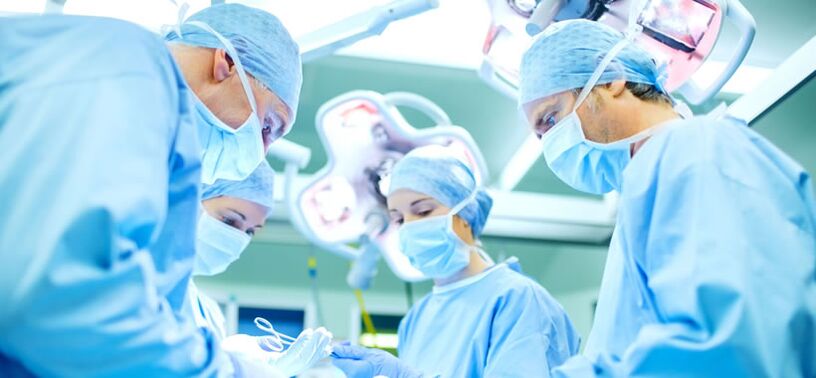
This group of drugs should not be combined with alcohol! Although, everything is not that simple. The 2003 study did not reveal the negative effects of drinking hard alcohol while taking drugs. However, doctors are convinced that the consequences of combining them are as follows:
- Severe abdominal pain;
- feel sick and vomit;
- Severe headache
- Chills
- Violation of heart rhythm;
- In rare severe cases, respiratory failure can occur.
Women should pay attention to the fact that not only oral and injection medications, but also the use of vaginal creams may also have disulfiram-like reactions.
Alcohol and Cephalosporins
Cephalosporins are a group of broad-spectrum drugs with strong bactericidal effects. They are considered the main "destroyers" of streptococci and staphylococci and can treat the following diseases:
- Upper respiratory tract infection;
- Diseases of the nose, throat, and ears;
- Skin and soft tissue infections.
Cephalosporins are commonly used to treat purulent sore throats-this is one of the most common infections in our country.
All cephalosporins, like nitroimidazole, can cause disulfiram-like reactions. The main symptoms: nausea, headache, abdominal pain, all caused by body poisoning. The possibility of disulfiram-like reactions must be taken seriously, because the consequences can be serious or even fatal.
Some drugs do not belong to the two groups listed above, that is, their interaction with alcohol does not cause a disulfiram-like reaction, but it can also bring negative consequences.
Antibiotics that are relatively safe for drinking
Many antibacterial drugs have successfully passed the compatibility test with alcohol, and their combination is safe for the body.
- Penicillin antibiotics.
- Expectorants and mucolytics are used to treat lung diseases to dilute thick sputum.
- Antifungal drugs.
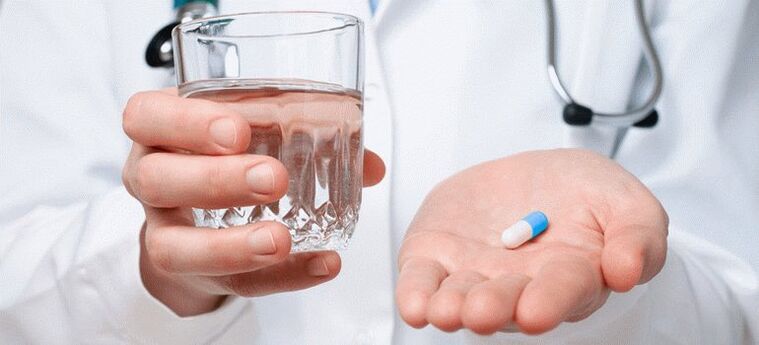
The above drugs can be taken with alcohol, but this does not mean that they can be safely washed away with spirits! The best option for an incident while taking antibiotics is to refuse alcohol altogether.
How to properly match alcohol and antibiotics-safety precautions
The best option for an event that occurs when a patient is treated with antibiotics is to refuse alcoholic beverages while taking the medication. In special circumstances, when you have to drink alcohol, you must comply with the following safety rules:

- Ask your doctor if you allow alcohol to be mixed with drugs and consider the possibility of giving up strong drinks.
- The shortest time interval between taking antibiotics and drinking alcohol is 4 hours. The shorter period is full of serious health problems.
- The amount of alcohol consumed depends on gender, weight, the severity of the current disease, and the amount of alcohol consumed, and should not exceed 300-350 ml.
- Ethanol is not only found in strong beverages (vodka, cognac, whiskey), but also in low-alcohol beverages (wine, champagne, beer). Even if the alcohol content here is several times less, drinking will not harm your health.
In patients receiving antibiotics, the question that arises is: How long after the end of the treatment can I drink alcoholic beverages? The attending physician can give the exact answer, which depends on several factors: gender, age of the patient, nature of the disease, health status, medication. Most drugs have a cumulative effect and continue to act on the body after the ingestion is over. Medical experts recommend that you start drinking within 5 days after the end of treatment.
Three principles of taking antibacterial drugs:
- Antibacterial drugs are produced and prescribed in different dosage forms: tablets, syrups, intravenous and intramuscular injections, eye drops, ointments, vaginal suppositories, and inhalation solutions. Any form of medicine can cause adverse reactions.
- Ethanol in alcoholic beverages is harmful to human health. It is not only found in cognac, wine and beer, but also in cough syrup, medicinal plant tinctures (licorice, marshmallow, echinacea, acanthopanax). It is necessary to study the ingredients of drugs taken at the same time as antibiotics.
- Read the medication instructions carefully to understand its compatibility with alcohol. If the instructions say that this issue has not been studied or there is no information, you will have to stop drinking alcoholic beverages during treatment.
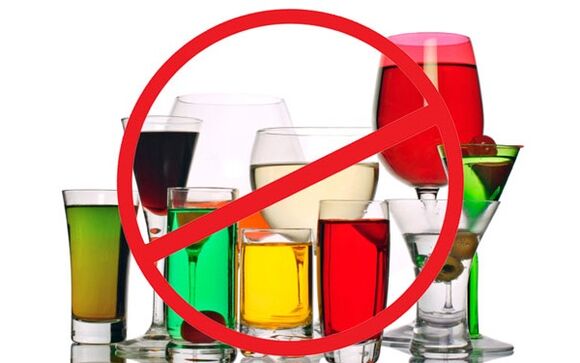
Antibacterial drugs can cause unnecessary burdens on the body and are prescribed in the case of serious illnesses. The doctor can only prescribe one medicine, and everything else depends on the patient. The patient must first consider a speedy recovery. People who are sick need to take prescription drugs in time, sleep at least 7-8 hours a day, and eat more foods high in vitamins and trace elements. It is best to forget about drinking during this period. This is especially true for people with chronic diseases of the heart, liver, and kidneys. Otherwise, the negative consequences will not force oneself to harvest. possible:
- Central nervous system failure and gradual death of brain cells.
- The symptoms of body poisoning are diarrhea, nausea, and vomiting.
- Kidney damage, urinary system problems.
- Violation of heart rhythm.
- Gastritis, gastric ulcer.
- Violation of the intestinal flora.
- Damage to the liver, leading to gradual cell death.
- With reduced immunity, the body will not be able to fight infection on its own.
- Palm of the heart.
- A spike in blood pressure is dangerous for hypertensive patients.
- Stool disorders in the form of constipation or diarrhea.
- Weakness, lethargy, loss of strength.
- Depressive state, neurasthenia.
- Irritability, insomnia.
- Decline in intelligence, memory impairment, and concentration.
- Fever and chills.
- Severe headache.
- twitch.
- Allergic reactions in the form of itching, rash, and redness of the skin.
- Difficulty breathing and Quincke's edema-without timely medical care, it will end in death.
- The treatment effect is small or non-existent.
- This disease can become a chronic disease and reduce the patient's quality of life.
A small amount of alcohol will supplement the holiday and help relax. But using it during illness will not bring any fun and will harm the body. This is the main thing a person should keep in mind when deciding whether it is worth mixing alcohol and antibiotics.
























